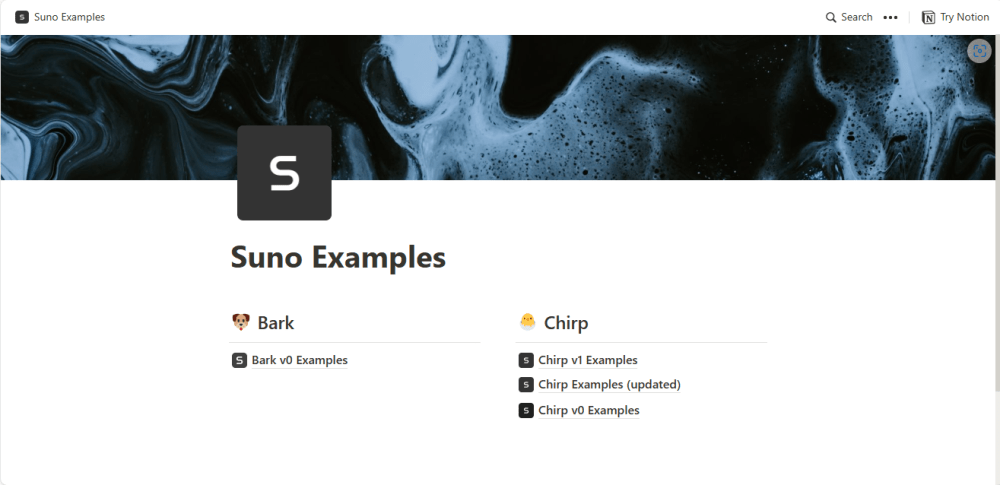Did you know that there is an amapiano song about the Gadget of the Week? Probably not, because until two minutes before writing this story, it didn’t exist. Thanks to artificial intelligence (AI), it is now possible to produce a music track on any topic, in any genre, with a single text prompt.
The amapiano song was created on a platform called suno.ai, using the prompt: “an amapiano song about the gadget of the week”. Here’s a taste of the lyrics it produced:
Gimme that gadget, gimme that glow (that glow)
You’re the gadget, takin’ me high and low (high and low)
Gimme that gadget, I can’t resist (ooh-yeah)
You’re the gadget that’s got me feelin’ like this (like this)
Poetry it ain’t, but it’s easy to imagine it being performed on stage or hearing it on radio. In fact, in the coming year, expect to hear more and more tracks on radio that established artists have generated with AI. Not so much on Spotify: the music streaming platform has banned AI-generated songs.
For now, it is a tool that will be most useful for those trying to generate ideas on which they can work further, create soundtracks for video content, or simply experiment and play. The available platforms vary in complexity, quality, price, features and even access.
For example, Google’s MusicLM requires you to apply and places your name on a waiting list. It won’t produce vocals, and won’t match one’s music to that of other artists. About the only thing it has in common with Suno is that it generates two versions of the trac, to give a choice of the output that is preferred.

Most ai music generators require some form of creativity to start, like Musicfy.ai asking you to upload your vocals, and Humtap wanting you to hum a tune first.
Mubert offers only instruments, and throws in the occasional “voice watermark”- shouting “Mubert!” at regular intervals, in order to persuade you to sign up to the paid version for social media use. It starts at $11.69 a month, while commercial use starts at $32.49 a month. Melodia is a low-priced mobile app that allows for some customisation, but tends to produce extremely bland material.
Expect the like of ChatGPT and Google Bard to disrupt these business models very soon. Already, in mid-November Google DeepMind unveiled Lyria, an AI tool for YouTube users to generate their own songs. It can do instruments and vocals, and promises to give more nuanced control of the output.
YouTube global head of music Lyor Cohen and emerging experiences vice-president Toni Reid said in a joint statement on 16 November: “In this initial phase, the experiment is designed to help explore how the technology could be used to create deeper connections between artists and creators, and ultimately, their fans.”

YouTube worked with nine artists, including Alec Benjamin, Charlie Puth, Demi Lovato, John Legend, Sia and Troye Sivan, who collaborated in the experiment “ to shape the future of AI in music”. They are allowing their voices to be used in short AI-generated tracks . However, only a small group of “select US creators” initially have access.
In the meantime, Suno.ai is open to all.
What does it cost?
Suno.ai is free for up to 50 credits a day (one request uses 10 credits), $8 a month for 2500 credits and $24 a month for 10,000 credits.
Why does it matter?
It is bad news for artists who could well see their value being eroded by automated tools that can match what they do, but great news for those who see ways of enhancing the work they produce, or speeding up their creativity by allowing them to experiment and test different approaches.
Most significantly, however, it demonstrates that the next phase of generative AI for all is here, going beyond producing text and now moving into other areas of creativity, including music and video.
What are the biggest negatives?
- The lyrics are often embarrassingly bad.
- Much of the music, especially when trying the rock and ballad styles, clearly sounds like it’s been automated or produced by an unthinking machine.
- Unlike generative chat, the current version doesn’t allow fine-tuning of a track that one has already created on the platform.
What are the biggest positives?
- It’s an amazing party trick to create songs about or for friends and family.
- With enough attempts, even the most uncreative individual can create a solid song or track in their preferred genre.
- One literally can create the soundtrack of one’s life.
- The free version allows a decent amount of experimentation.
* Arthur Goldstuck is founder of World Wide Worx and editor-in-chief of Gadget.co.za. Follow him on Twitter and Instagram on @art2gee
